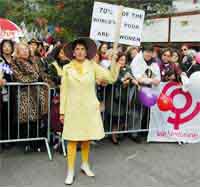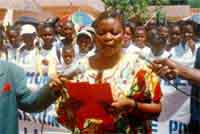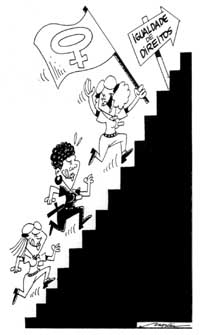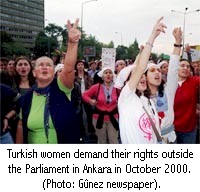The two global themes of the March are articulated in 17 concrete and specific demands that aim for the elimination of all these situations.
They include the adoption by states of a "legal framework and strategies for the elimination of poverty" to guarantee access to basic resources (water, food, housing, health), education, equality in employment, pay and the sharing of household tasks, the implementation of the Tobin tax (a 1% tax on financial transactions), the benefits of which would be earmarked for development projects (particularly for women), and debt cancellation for all poor countries.

The demands concerning violence include ratification of international agreements aimed at eliminating all forms of discrimination against women, the adoption of legislation prohibiting violence against women, and rejection of the justification of violence based on custom, religion and cultural practices.
March participants came to a consensus on most of the demands. The demands concerning violence against lesbians were met with some resistance due to cultural barriers.
National coordinating bodies defended the world platform in their countries, using it to advance their own demands. Fifty of them drafted national platforms reflecting their specific concerns and priorities.
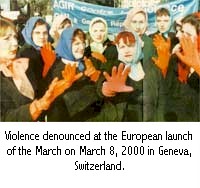
This process, spread out over many months, was accomplished through consultation with grass-roots groups, discussions, and collective decisions. It allowed groups that had been working in isolation up until then, to forge bonds of solidarity at the regional level (common platforms were adopted in the Arab world, Europe, the Great Lakes region of Africa, and by Indigenous women).
Despite communication difficulties (geographic distance, telephone, post) and meagre funding, women believe they reached the people in their countries.

